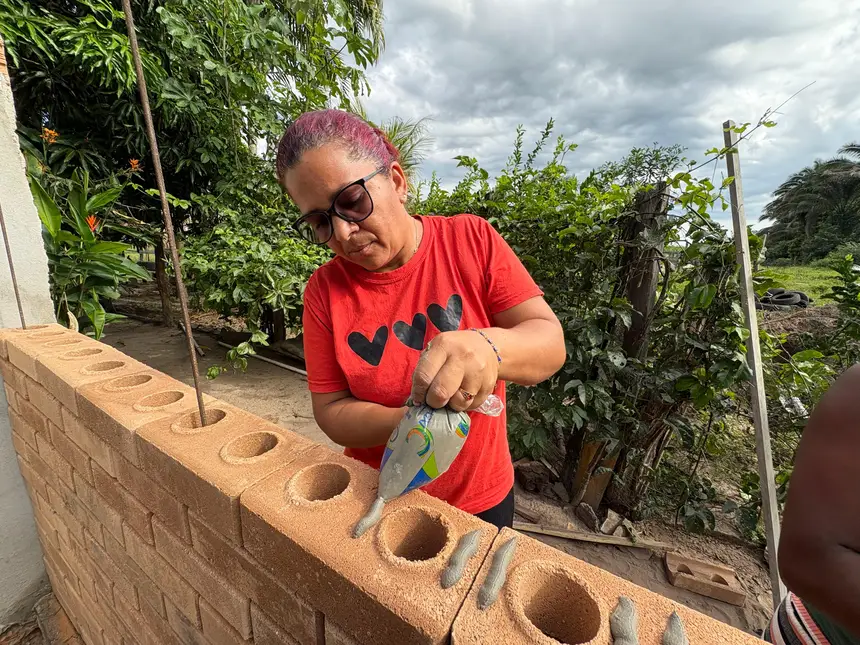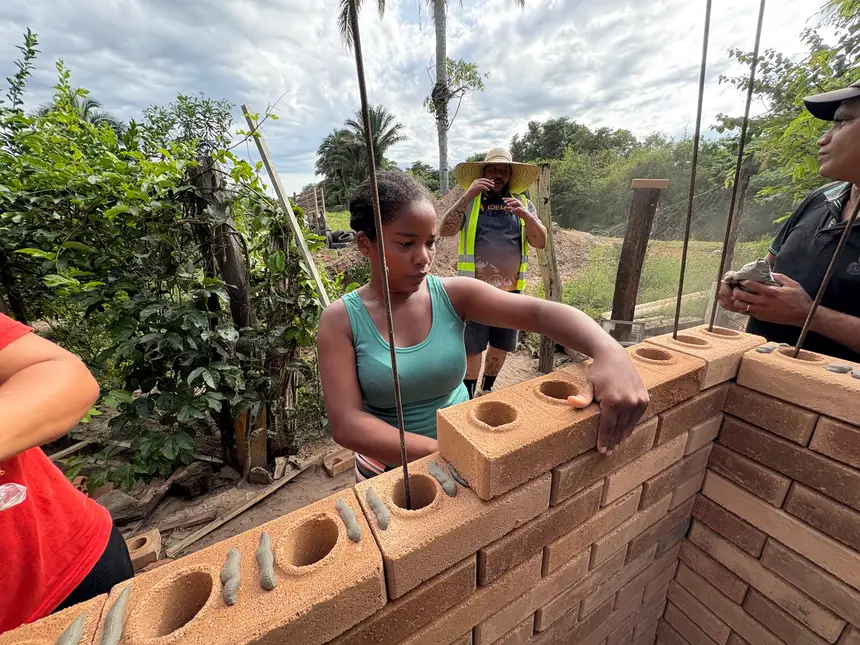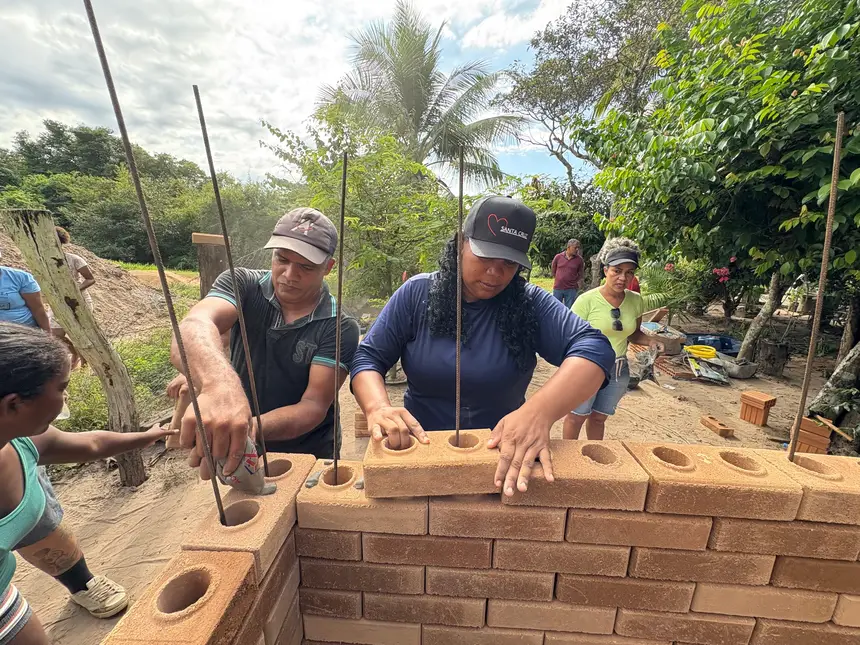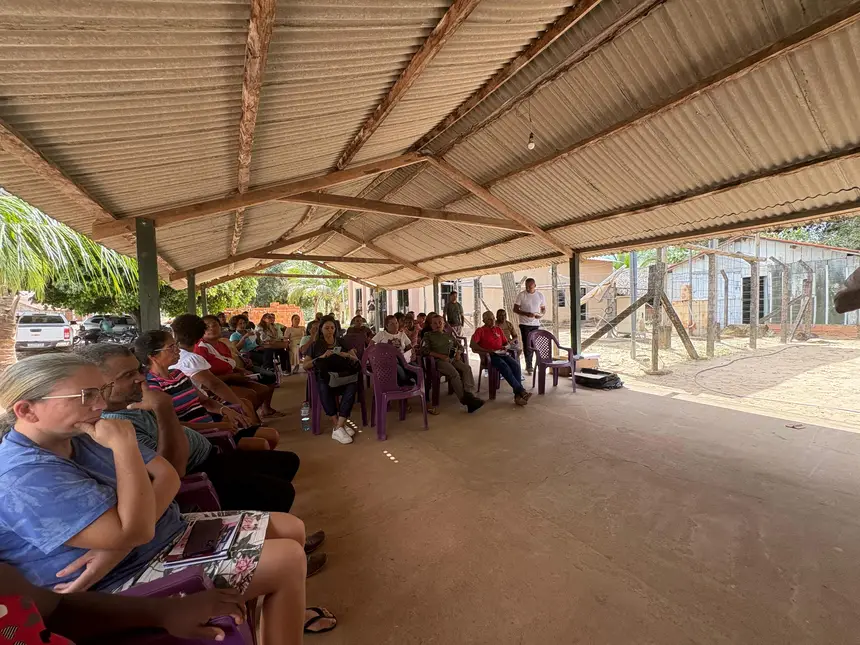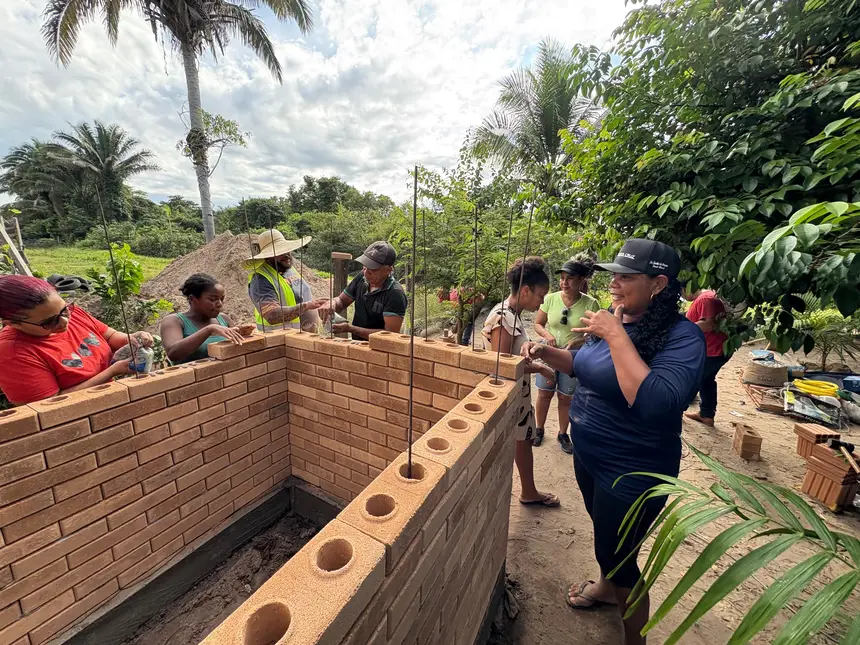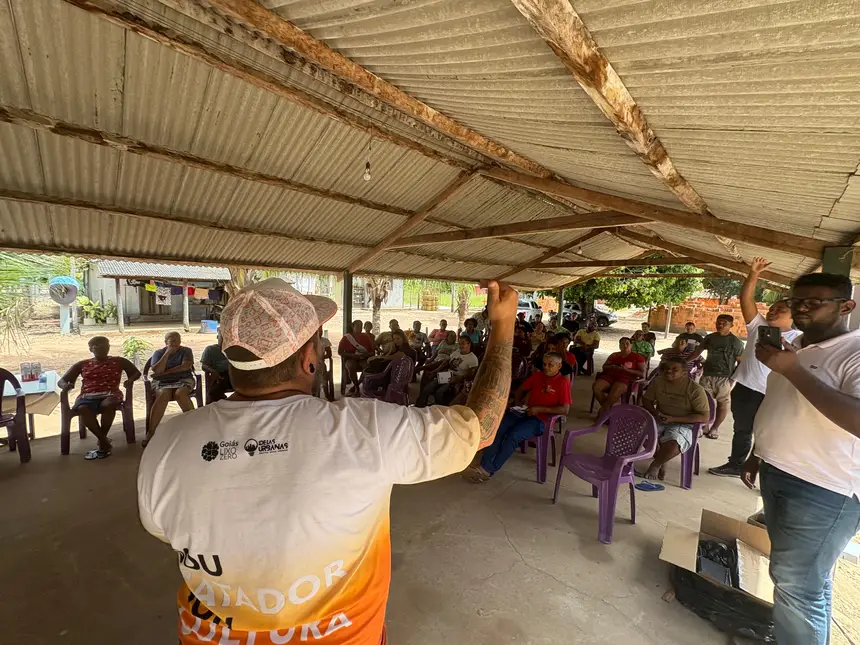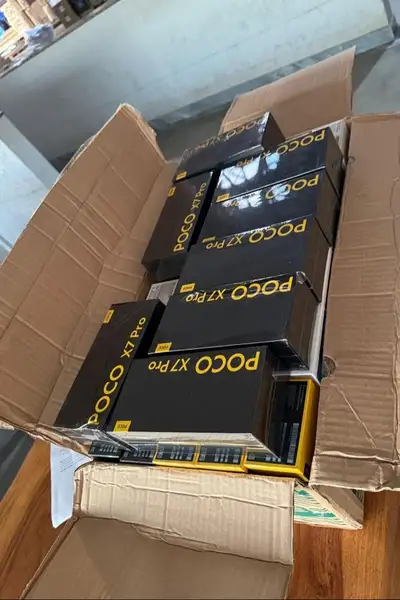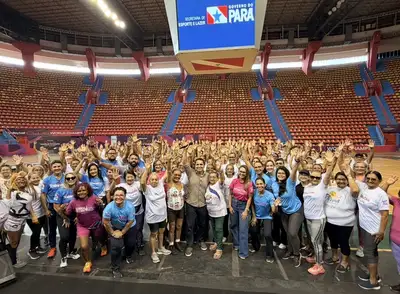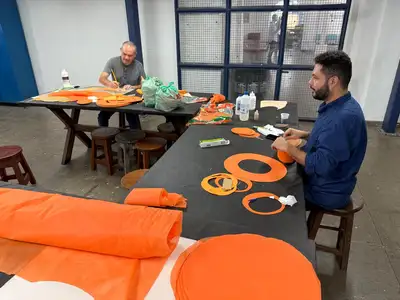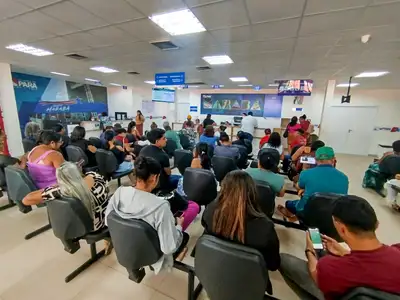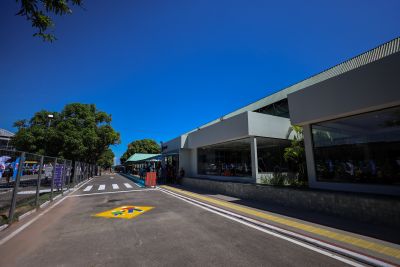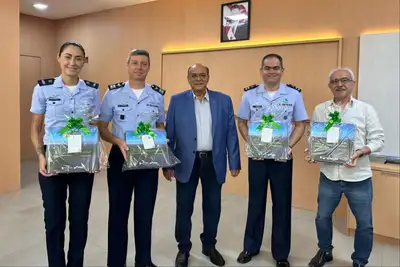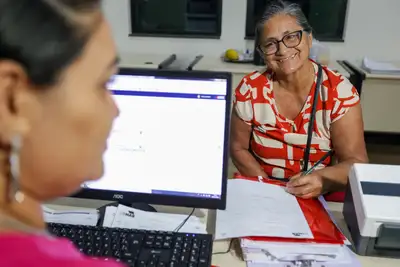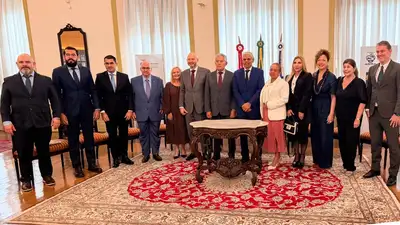Ideflor-Bio and MPPA promote Community-Based Tourism and Bioeconomy workshop in São Geraldo do Araguaia
The training aims to empower the population for sustainable practices, strengthening community-based tourism and bioeconomy as alternatives for income generation and environmental preservation
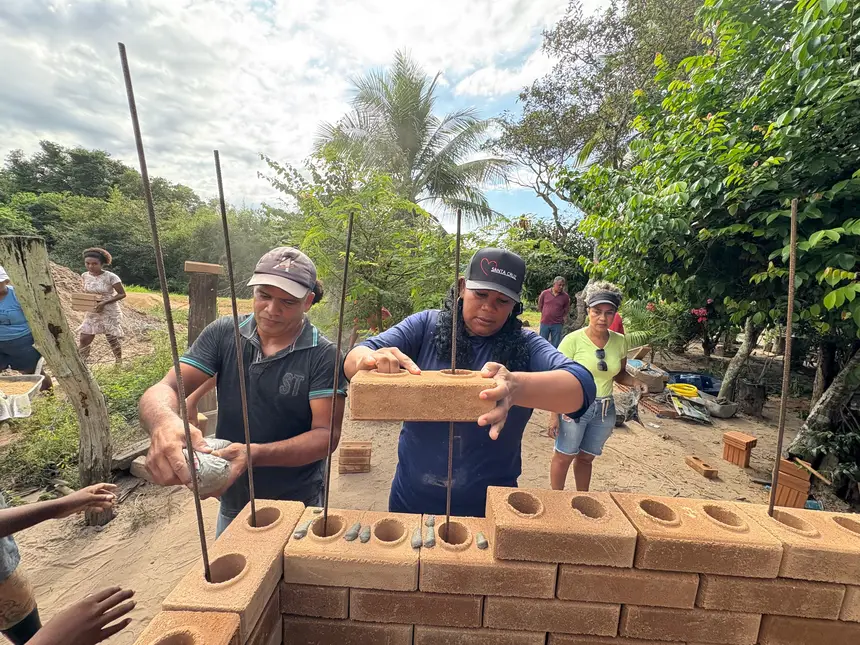
The Community-Based Tourism and Bioeconomy workshop began on Tuesday (13) in Vila Santa Cruz, a rural area of São Geraldo do Araguaia, southeastern Pará. The initiative is a project of the Public Ministry of the State of Pará (MPPA), through prosecutor Dr. Alexssandra Mardegan, and has the technical support of the Institute for Forest Development and Biodiversity of Pará (Ideflor-Bio) and the City Hall of São Geraldo do Araguaia, through the Municipal Tourism Secretariat.
The workshop gathered about 20 participants, including community residents and entrepreneurs
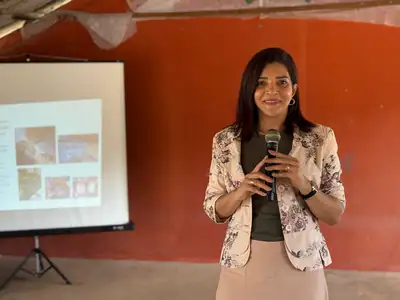
from the surroundings of the Serra dos Martírios/Andorinhas State Park, aiming to empower the population for sustainable practices, strengthening community-based tourism and bioeconomy as alternatives for income generation and environmental preservation.
“Building sustainable and inclusive alternatives for traditional populations is a priority. This workshop arises from listening to and addressing local demands, and seeks to value the knowledge of the community itself,” stated prosecutor Alexssandra Mardegan.
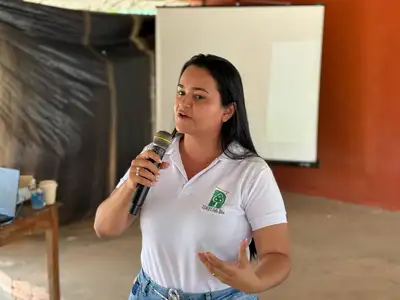
Knowledge - Representing Ideflor-Bio, the manager of the Araguaia Administrative Region, Laís Mercedes emphasized the importance of the partnership in conducting the workshop. “Our role is to contribute with technical knowledge and support communities to be protagonists in managing the territory and conserving natural resources,” she emphasized.
The Secretary of Tourism of São Geraldo do Araguaia, Ludimila Brito, also highlighted the relevance of the action for the development of the municipality. “Strengthening ties with communities is essential. These initiatives have much to add to the tourism of São Geraldo, boosting the local economy and promoting our territory sustainably,” she highlighted.
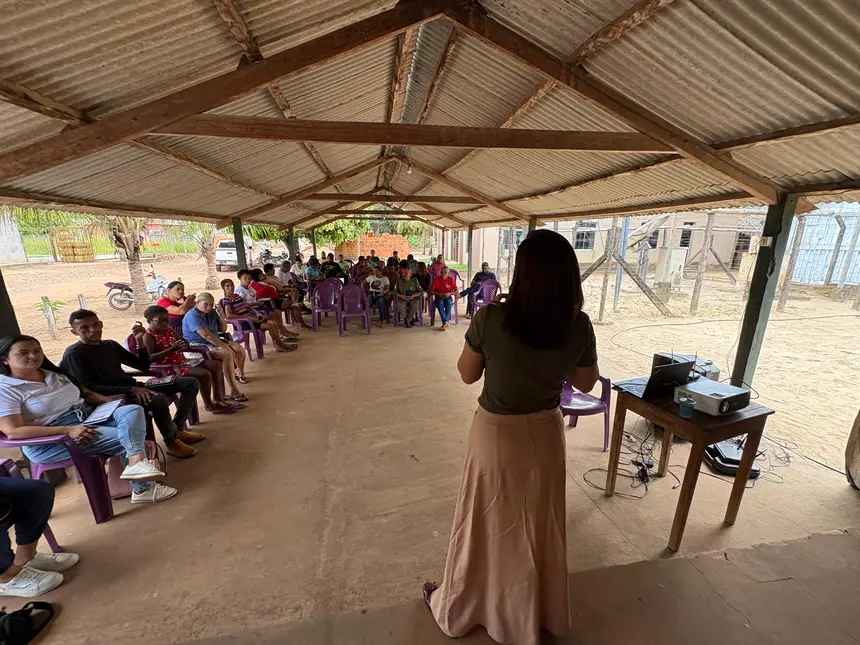
The program was divided into two parts. In the morning, the theoretical part was conducted, with discussions on bioeconomy, community tourism, and public policies for sustainability. In the afternoon, participants engaged in a practical activity on building bathrooms with ecological bricks.

Techniques - The course was taught by bioarchitect Filemon Tiago, who highlighted the advantages of bioconstruction. “The technique with ecological bricks can reduce total construction costs by up to 30%, considering materials and labor. Moreover, it is an efficient solution aligned with sustainability principles,” he explained.
The program continues until Friday (16), with the realization of two more practical workshops, preparing the community to apply the knowledge acquired in their own sustainable projects and initiatives.
Text: Pablo Allves (Ascom/Ideflor-Bio)


